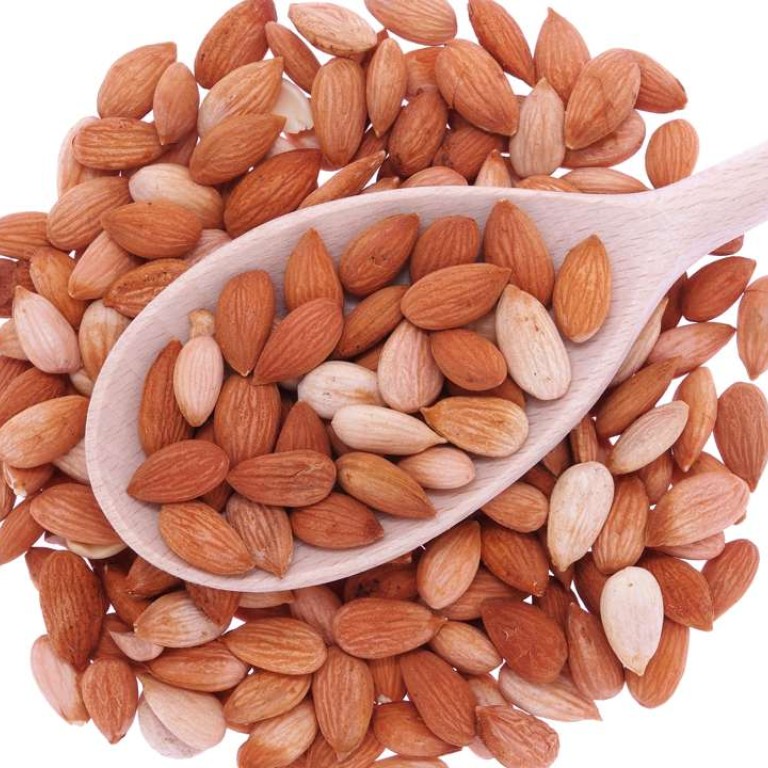
Apricot kernels shouldn’t be used as a natural treatment for cancer
Known as xing ren in traditional Chinese medicine, apricot kernels have been used in the past to treat lung problems, constipation and cancer
Question: Can apricot kernels, or xing ren in TCM, treat cancer?
The straight answer: No
The facts: it could be easily mistaken for an almond by its taste, look and smell, but an apricot kernel contains protein, fibre, and a high percentage of oil and amygdalin, a poisonous cyanogenic glucoside, also known as or laetrile or erroneously as vitamin B17.
Used to flavour sweet Italian liqueur amaretto, apricot jams and amaretti biscottis, apricot kernels or ‘xing ren’ are also used in traditional Chinese medicine to treat lung conditions such as asthma and chronic coughs caused by dry lungs (since it’s an effective expectorant for expelling phlegm) as well as to relieve constipation.
While other plants like almonds, peach pits, apple seeds, lima beans and cashews also contain amygdalin, apricot kernels have the largest concentration of it. When amygdalin breaks down in the body, it produces a small amount of toxic hydrogen cyanide. A dose of 0.6mg -1.5mg per kg of body weight is fatal.
According to the European Food Safety Authority (EFSA), a single serving of three small apricot kernels or one large apricot kernel could put adults over the suggested safe levels of cyanide exposure, while one small kernel could be toxic to a toddler. It advises that no more than 20 micrograms of cyanide per kilogram of body weight should be consumed at one time. This limits consumption to one kernel for adults, and even half a kernel would be over the limit for children. In a report it published in March last year, EFSA mentioned 260 cases of cyanide poisoning among children in Turkey, where the seeds are a common food.
In TCM, xing ren is used very cautiously. Even the traditional prescription for a cough includes the use of just a few brewed crushed seeds. And in the case of an overdose, tea from the apricot tree’s bark serves as an antidote.
Raymond Chung Tsz-man, a nutritionist at Albert Place Practice/Mineralysis says: “It is always safer to consult your health care practitioner before consuming these alternative functional foods. I do not recommend using apricot kernels for cancer prevention or treatment or as food therapy because of potential cyanide poisoning risk due to the presence of cyanogenic glycosides found in them.”
He cites the case of severe cyanide poisoning in a four-year-old boy in Germany undergoing alternative medicine treatment with amygdalin and apricot kernels. The unresponsive child was brought to the emergency department of the hospital where initial blood gas analysis demonstrated severe metabolic/lactic acidosis. On questioning his parents, it was found of that they were administering complementary and alternative medicine including intravenous and oral amygdalin and oral apricot kernels. Luckily the doctors were able to save him.

While the internet shows up many accounts of those who believe they’ve benefited from this radical alternate treatment, there’s no scientific evidence to prove its efficacy. In fact, scientists insist that the cyanide is toxic to all cells since it impedes oxygen supply, which in turn is detrimental to the heart and brain which needs uninterrupted supply to function optimally.
Some countries like Australia and New Zealand have banned the sale of raw apricot kernels. The Cancer Council of Australia warns they’re not only ineffective at treating the disease, but can be very dangerous.
When the ban came into effect in December 2015, Steve McCutcheon, CEO of Food Standards Australia New Zealand said in a statement: “There have been a number of cases of cyanide poisoning related to consumption of apricot kernels, with some consumers eating them believing they can help cure or prevent cancer, although there is no credible evidence that is the case.”
A couple of months later in May 2016, the UK government’s Food Standards Agency issued a warning over the growing apricot-kernel health craze stating, “We advise that bitter apricot kernels including the powdered forms should not be eaten.”
The American Herbal Products Association has given xing ren a Class 3 rating, which means products that contains apricot seeds should be used only under the supervision of an expert qualified in the proper use of the substance, it is not recommended for children, and a licensed health care provider should be consulted before the consumption of apricot seeds or any other dietary supplement or herbal remedy.
